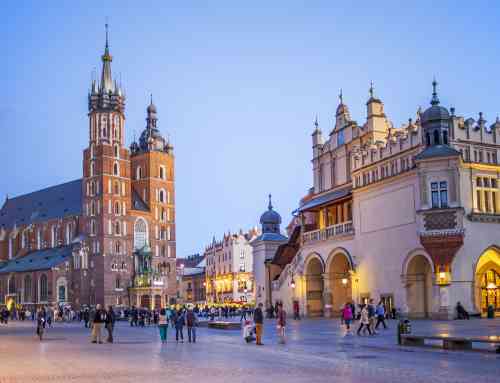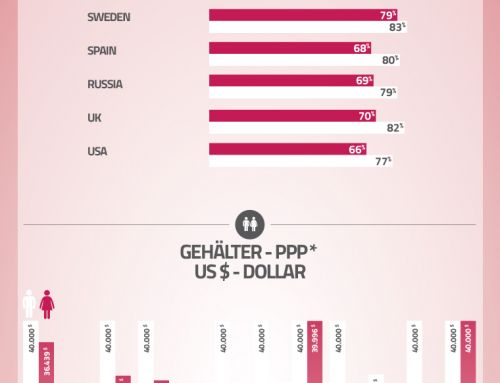Uncertainty avoidance
Some cultures can deal well with uncertainty, some cannot. Uncertainty comes in different forms. In business life, a lot of things are uncertain. One good example ist he development of foreign exchange rates. The markets have created lots of products to deal with that.
The uncertainty avoiders
No one likes uncertainty, to make that clear. Some cultures, however, can deal with uncertainty better than others. Germans do not fall into this category. In fact an das the Globe Study proves and as you learn in an intercultural training Germany, Germans are among the strongest uncertainty avoiders, together with the Swiss.
The reason for this can be manyfold and often found in history. Raising sheep for example is less risky than planting crops. The size of a herd of sheep can be estimated with a high degree of certainty. You know how many sheep will probably be born, you deduct a certain number that will be victims of wolves or the ones that you plan to sell and unless there is an unexpected outbreak of a desease you can be fairly sure how many sheep you will have the next year.
The success of a harvest is mainly determined by the weather. As a result you can never be sure and for safety reasons you should develop possible plans to countermeasure a bad harvest. Or you starve. Germany always mainly planted crops.
Managing uncertainty
You can manage uncertainty in a variety of ways. The easiest way to do so is that when you expect high disadvantages, you just do not do anything. Another one is to build up an organisation (e.g. bureaucracy) to manage the risk or to obtain guarantees to minimize the risk. You also can make elaborate plans where you take possible outcomes into account and define measures beforehand how to avoid negative consequences. As you learn in an intercultural training Germany, Germans love to make plans.
Corona and uncertainty
Corona is not the first a pandemic in Germany and Europe and as such rather easy to pedict. The spread of the desease depends on how contageous it is and how many contacts between persons happen. And that makes it so hard for the politicians to decide what to do. Ideally, we should all stay home doing nothing for 2 to 3 weeks. But what about the economy? What about the need to shop for food? What about psychological strain?
No wonder that politicians have trouble to decide what the best way out is. Thus, many countries stumble from one „lockdown“ to the next. Everyone hopes for the vaccines to change to game, provided that the virus is so cooperative not develop mutations against which the current vaccines are powerless. So, the obvious solution is to producece vaccines like hell and to vaccinate as fast as possible to return to normal life.
Vaccines? Yes, please
The first decision of Germany was to go along with the EU regarding the sourcing of vaccines despite the fact that a German company was on the forefront to develop a vaccine. Basically, it is a good approach, not taking national interests at the expense of our neighbours into account. After all, one country cannot beat virus alone. But when to order? And at what price?
Many pharmaceutical companies have engaged themselves in developing vaccines. However, vaccines need to be produced in enormous quantities. Once a vaccines is tested and gets the ok from the authorities, it doesn´t mean that the next day millions of bottles will be available.
As a consequence, the authorities would have needed to order the vaccines not being sure that they will actually work as hoped. Those who did are now at an advantage.
Sourcing vaccines – a European „comedy“
Brüssel ordered vaccines rather late. And claimed that they negotiated a good price. Other countries were more clever. The British, just relieved form European boundaries, did their own thing and got more doses earlier. Israel made a deal with Biontec/Pfizer to hand over data of patients and vaccinations in exchange for a privileged delivery of vaccines, a thing that would be impossible in the EU due to data protection regulations. Both cultures are far less uncertainty avoiders than the Germans.
You may wonder what Germany has to do with this strategy, since it is only one of 27 countries. Well, Germany ist he biggest and economically most important country. And the head of the European Commission is – a Germany lady, Ursula von der Leyen. She is not known to be a progressive achiever and when she changed form being the defense minister to becoming the president of the European Commission, she left our military in a regrettable state. A good example for an uncertainty avoider.
Sputnik V or Sinovac? Can they be trusted?
Sinovac, as I have read, is not so efficient. Sputnik V is, contratry to first believes, quite good. There are countries that had ordered and used them widely, for example Serbia and Chile. Still, both vaccines have not received approval from the EU authorities. Since they are from Russia and China, political reasonings may play a role. However, at least Sputnik V is said to be efficient. And again – the question is whether to acquire urgently needed vaccines that are used successfully in other countries – or to be on the safe side. The EU has opted for the safe side.
Vaccine strategies – need for speed
As a result, Germany like many other European countries, lags behind the vaccination speed compared to other nations. The Germans are known to be good organizers and the infrastructure is there. Just the number of vaccines is behind expectations. And this does not only concern Germany, it also concerns all other EU nations. Thus, the German authorities have adopted a plan that the most endagered groups facing death should be vaccinated first – people over 80 and those with special conditions. If you want to reduce the death tall, that seems logical, and it works.
On second thought, why not vaccinate those that are more likely to spread the virus, meaning younger and working people. Finally this is a question that cannot be finally answered. Knowing that they cannot stop the virus, the goal of the German government always was to make sure that as few people as possible die. And this strategy they follow consequently.
German are unhappy
The German public is far from being satisfied with the management of the corona crisis. They mainly blame Ursula von der Leyen, president oft he EU commission, and the Germanr health minister Jens Spahn. What would they have said, if the EU had spent millions of useless vaccines? And this is despite the fact that Gemany has done far better in the crisis than other countries, like France or Italy or even the European vaccination champion Great Britain. Germans usually look at what we could have done better instead of what did we do well. In my opinion, uncertainty avoidance had a significant share in the current situation. But after the fact, you are always wiser
What now?
You live and learn. Many virologists have warned long ago that a pandemic may hit the world. Firts outbreaks of MERS and SARS in Asia could be held at bay. Europe, not being concerned, did some preventive action, but everything went well. Now, we face the truth. A pandemic is like an earthquake. You know that it will happen at some point in time, but you don´t know when. Now there are plans in Germany to ensure that enough masks can be produced and that a strategic reserve of 2 billion doses of vaccines (enough for the EU population) shall be created. Basically a good idea, But it costs. And people forget fast. Hopefully, this measure to avoid future uncertainty doesn´t become the victim of some persons with a red pencil.





































